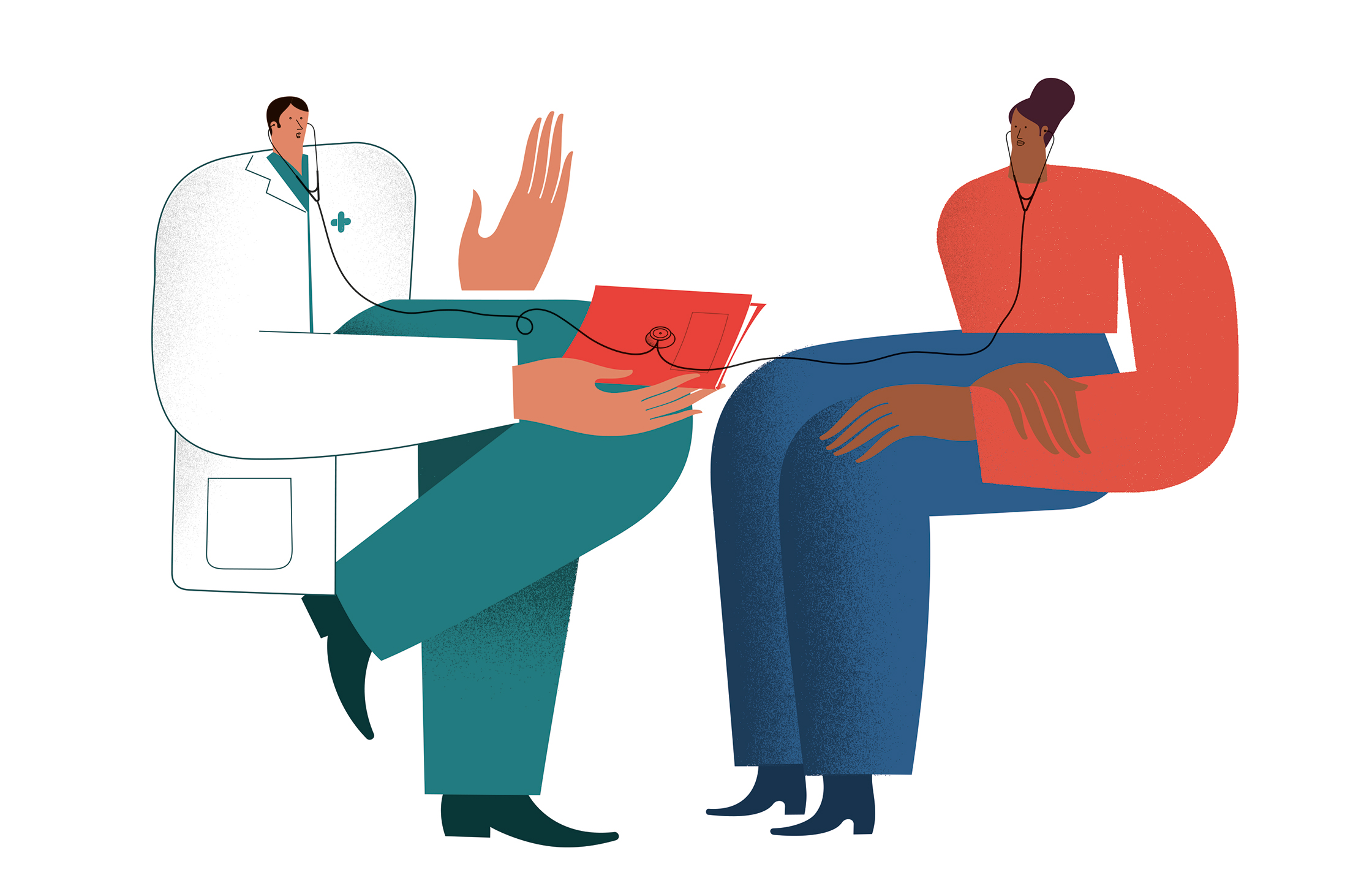One Physician’s Story
A cancer specialist describes why good doctors are good storytellers
By Mikkael A. Sekeres, M.D., M.S.
Illustration by Juarez Casanova

Illustration by Juarez Casanova
M
ikkael A. Sekeres, M.D., M.S., is professor of medicine at the Miller School and chief of the Division of Hematology at Sylvester Comprehensive Cancer Center.
“I’ve always thought that medicine is inherently about storytelling, and one of the great privileges we have as health care providers is soliciting the stories of other people’s lives. Through my patients, I have learned what it’s like to work in steel mills and apiaries, as airplane pilots and policemen, or as truck drivers and teachers. I have vicariously stepped into the boxing ring at Madison Square Garden, flown to outer space, witnessed the Cuban missile crisis on a naval warship, and fled Cuba during the Mariel boatlift. I guess I come by it honestly — I was born and bred in Providence, Rhode Island, and I come from a family of English majors. My dad was a journalist — a reporter, and later an editor, for the Providence Journal Bulletin.
I remember going out to parties when I was in high school. I’d come slinking home and not want to divulge any information about what had transpired during the past few hours. But my dad, the reporter, would pepper me with questions: “What was the house like when you walked through the door? Where was the living room? Where was the kitchen? What kind of food did they serve? Was there any dancing?” He’d continue until he could picture the scene as if he were there.
That’s really what we do when we meet patients for the first time. Like journalists, we try to elicit facts to imagine our patients’ varied lives and eventually tell a clear story of their illness — even picturing ourselves suffering in our patient’s place. We reframe that story in our own minds to try to make sense of it. The better we are at storytelling, the better doctors we become. If the story fits into a logical pattern, we often can arrive at a diagnosis, and then we tell the story of how to treat the illness.
But as a hematologist-oncologist, I also recognize I’m an unwelcome guest. My patients don’t want to have a story of cancer. An important part of my job, then, is to both honor their story and recognize their heroism as they go on this unwanted journey with me by their side.
Also, like a journalist, I learned that the best way to talk to a patient is to meet them where they are, and not hide behind the armor of medical vernacular. I learned this with my own parents. During my residency training, I was talking to them on the phone describing some medical esoterica when they stopped me in my tracks. “Why are you using these terms?” they asked. “It’s us, your parents. Why don’t you speak to us like you always did?” So, I began trying to relate to my patients on their level and talk to them the way I would my own family. It helped me better understand their stories. It made me better at telling my own stories. And it made me a better doctor.”
Want to hear from Dr. Sekeres? Listen to his conversation with Dean Henri Fordon the Inside U Miami Medicine podcast. ![]()



